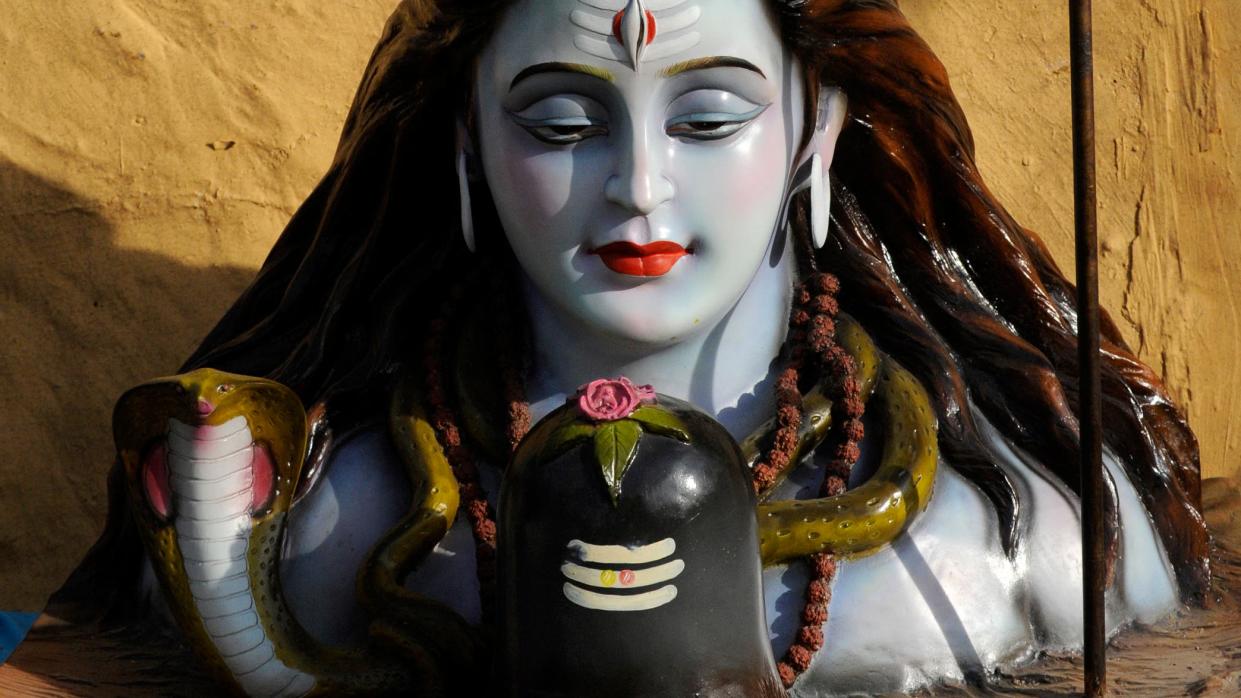Extinct snake named after Shiva’s serpent may have been one of largest ever

An ancient species of snake which lived about 47 million years ago may have been one of the biggest snakes to have ever lived, research suggests.
The newly identified animal, dubbed Vasuki Indicus, reached an estimated length of 11-15 metres (36-50 feet).
Experts suggest it was part of the now extinct madtsoiidae snake family, but represented a distinct lineage that originated in India.
Debajit Datta and Sunil Bajpai, from the Indian Institute of Technology Roorkee, described a specimen recovered from the Panandhro lignite mine, in Gujarat, India.
The new species is named after the mythical snake around the neck of the Hindu god Shiva and in reference to its country of discovery, India.
The authors describe 27 mostly well-preserved vertebrae (back bones), some of which are articulated, which appear to be from a fully-grown animal.
Writing in the journal Scientific Reports, the researchers said: “The estimated body length of 11 to 15 metres makes this new taxon (Vasuki indicus gen et sp. nov.) the largest known madtsoiid snake, which thrived during a warm geological interval with average temperatures estimated at approximately 28C.”
The back bones measure between 37.5 and 62.7 millimetres in length and 62.4 and 111.4 millimetres in width, suggesting a broad, cylindrical body.
Based on this the researchers estimate that the animal may have reached up to 15 metres in length – comparable in size to the longest known snake to have ever lived, the extinct Titanoboa.
However, the researchers say there is some uncertainty around the estimates.
They further speculate that the snake’s large size made it a slow-moving, ambush predator akin to an anaconda.


